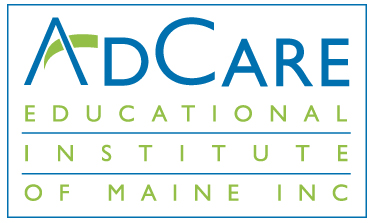Our New England PTTC team is excited to announce we will once again be serving Region 1 to bring the best prevention training and technical assistance to New England!
We look forward to partnering with local, state, and regional providers to bring the best of prevention science and practices to Maine, New Hampshire, Vermont, Massachusetts, Connecticut, and Rhode Island, and elevating our experts to demonstrate excellence in prevention science here at home and with our partners nationally.
Our prevention subject areas of special expertise include Cannabis, cannabidiol, and other cannabinoid-related risk education and prevention. We will continue to promote these products in the region and amongst the PTTC Network.
As we plan the next five years, we will look to you, our partners, to continue reaching out to us to help us identify the most effective training and technical assistance. Please send a technical assistance request or reach out to us directly (newengland@pttcnetwork.org), to start a conversation about what you need! We’re looking forward to what we will accomplish together!
The New England PTTC will:
- Implement innovative technology transfer strategies, including distance, such as the monthly webinars on prevention science topics prioritized through the regional needs assessment, the Prevention in Action Webinar Series which features success stories of prevention science implementation in New England, and Project ECHO programs.
- Provide in-person training opportunities, including Training of Trainer (TOT), Success Training (SAPST), prevention ethics, and SAMHSA Prevention Core Competencies.
- Develop innovative technology transfer strategies that connect to storytelling, including continued training and dissemination of the Graphic Medicine “In The Air,” along with the upcoming Graphic Medicine on Problem Gambling Prevention, set to publish by the end of 2024.
- Promote existing technical assistance products covering topics like health disparities, cannabis, vaping, opioids, problem gambling, cultural humility, and substance misuse disorders
- Implement data-driven continuous quality improvement methods to ensure our technical assistance services are impactful and increase participants’ knowledge and skills to achieve outcomes when implementing prevention science.
- Provide new and innovative resources for the field through development and programs such as the Research and Design (RAD) Fellowship.
- Continue to be responsive to diverse populations in the region by developing culturally and linguistically appropriate internet-based materials covering the lifespan.
- Active in cross-regional and PTTC Network-wide activities; including Cross-regional partnership coordinating the Building Our Leadership in Diversity (BOLD) Prevention Fellowship Program.
- Collaborate and coordinate technical assistance efforts with all relevant SAMHSA-funded entities, working closely with NE ATTC, other Regional PTTCs, PTTC NCO, SPTAC, SAMHSA’s Strategic Prevention Technical Assistance Center (SPTAC), and other entities.

